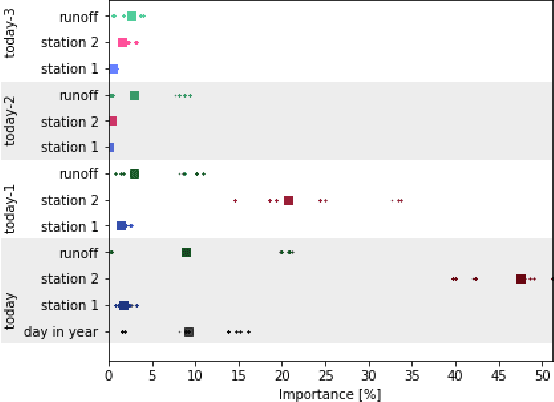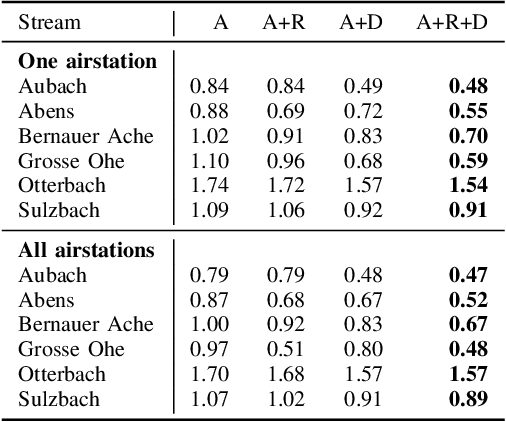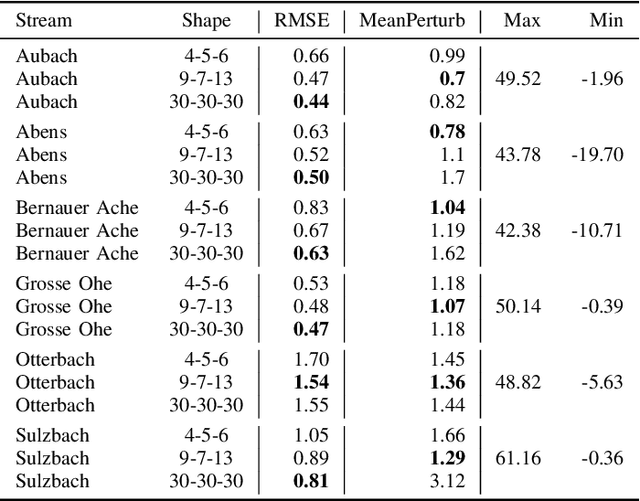Assessment of Neural Networks for Stream-Water-Temperature Prediction
Paper and Code
Oct 08, 2021



Climate change results in altered air and water temperatures. Increases affect physicochemical properties, such as oxygen concentration, and can shift species distribution and survival, with consequences for ecosystem functioning and services. These ecosystem services have integral value for humankind and are forecasted to alter under climate warming. A mechanistic understanding of the drivers and magnitude of expected changes is essential in identifying system resilience and mitigation measures. In this work, we present a selection of state-of-the-art Neural Networks (NN) for the prediction of water temperatures in six streams in Germany. We show that the use of methods that compare observed and predicted values, exemplified with the Root Mean Square Error (RMSE), is not sufficient for their assessment. Hence we introduce additional analysis methods for our models to complement the state-of-the-art metrics. These analyses evaluate the NN's robustness, possible maximal and minimal values, and the impact of single input parameters on the output. We thus contribute to understanding the processes within the NN and help applicants choose architectures and input parameters for reliable water temperature prediction models.
 Add to Chrome
Add to Chrome Add to Firefox
Add to Firefox Add to Edge
Add to Edge